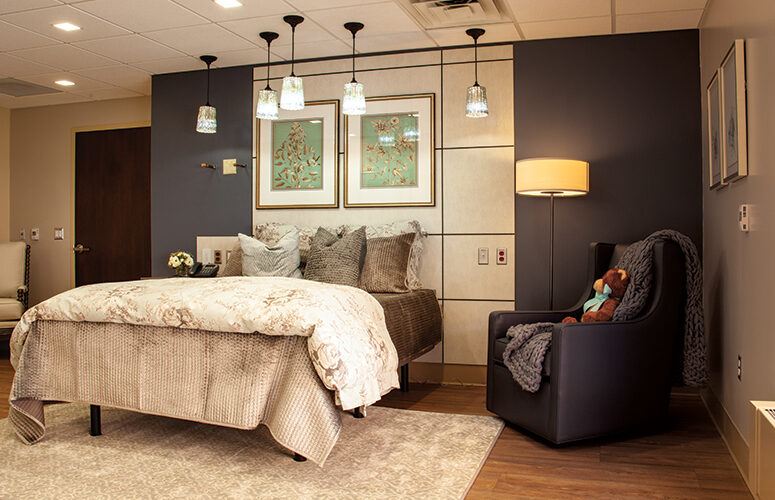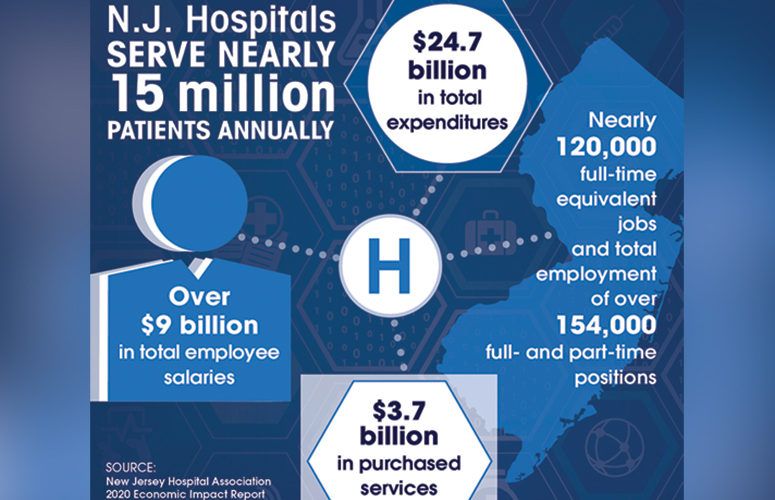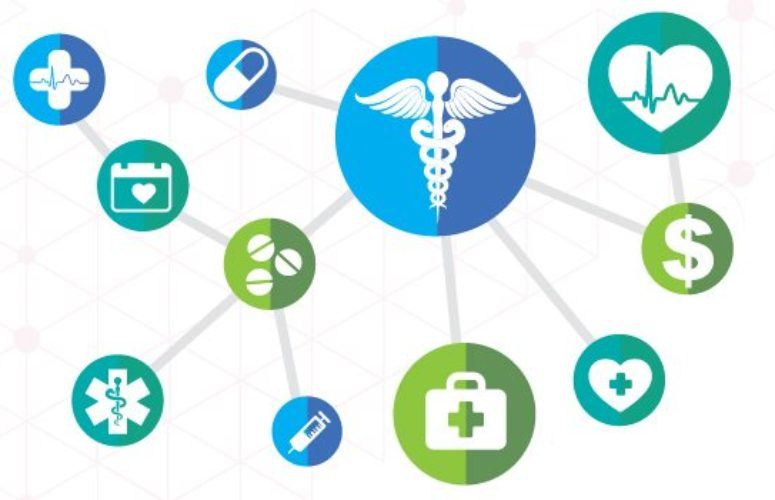
Maternity Care in New Jersey
The state’s healthcare institutions are combining cutting-edge technology with a focus on equity to deliver the highest quality of maternity care.
By Jennifer Lesser, Contributing Writer On Sep 13, 2022As New Jersey healthcare networks are relying more and more on state-of-the- art monitoring systems and diagnostic capabilities that were never before possible in labor and delivery units, they are also setting their sights on a more equitable future for all women to receive the same high level of maternity care before, during and after birth.
To that end, in early 2021, First Lady Tammy Murphy unveiled the Nurture NJ Maternal and Infant Health Plan, which aims to reduce New Jersey’s high rates of maternal and infant mortality while eliminating racial disparities. Murphy’s strategic plan focuses on making New Jersey a safer and more equitable place to deliver and raise a baby by reducing maternal mortality by 50% over five years and eliminating racial disparities in birth outcomes. The plan includes more than 70 recommendations for stakeholders across all sectors to position the state as a national leader in maternal health equity.
“Fully achieving the goals of Nurture NJ requires transformative change to a system that has historically and disproportionately failed black women,” says First Lady Tammy Murphy. “The Nurture NJ Maternal and Infant Health Strategic Plan provides the blueprint for necessary collaboration, partnership and communication among government, private stakeholders, nonprofits and impacted communities, and will ensure every New Jersey mother and baby gets off to a healthy start.”
Meanwhile, the New Jersey Commission on Science, Innovation and Technology (CSIT) will award 10 grants of $75,000 to help early-stage innovation-based companies throughout the state accelerate their development of technologies, products and services that support pregnant women and new mothers. The grant program will also support investments in research and development and new technologies in maternal and infant health within sectors including life sciences, technology and non-retail food and beverage.
At the same time, the state’s healthcare institutions are doing their part to ensure the health and safety of both delivering mothers and their babies. Englewood Health’s maternity services span from pre-conception consultations through postpartum emotional support for some 3,000 women each year. Other services include specialized education classes, nutritional support, a state-of-the-art neonatal intensive care unit along with holistic offerings like meditation and yoga.
“We’re unique in that we continue to publish, perform research and provide cutting-edge services and technology, the kind often found at large academic institutions, right here in a community setting,” says. Dr. Andrei Rebarber, a maternal-fetal medicine specialist with Englewood Health.
One such example is Englewood’s recent work in the delivery of cervical cerclages, or stitches. “Cerclages themselves are not new or novel, but applying them preventatively is,” he says. “In the past, cerclages were applied once someone already had experienced a pregnancy loss, but we are identifying patients who are the best candidates for cerclage placements and applying them before a pregnancy loss has occurred.”
For high-risk pregnancies, Englewood’s Maternal and Fetal Medicine Center combines medical expertise with advanced technology and is fully equipped to perform procedures such as amniocentesis and chorionic villous sampling. Onsite genetic counseling is available as well as expert counseling by a board-certified maternal-fetal medicine specialist and a geneticist.
According to Dr. Carlos W. Benito, chair of the Department of Obstetrics/Gynecology at Saint Peter’s University Hospital, the healthcare institution is also using technology to address one of the biggest safety concerns for birthing mothers: post-partum hemorrhaging. Saint Peter’s has a new system of assessing that risk for a mother as soon as she enters the hospital, and can deliver assessments throughout her labor to indicate to providers which mothers are at a higher risk for bleeding. All of the instruments and medication needed to treat these mothers are prepared and accessible in advance.
Healthcare systems are also taking existing technology, such as fetal heart rate monitoring, to the next level in order to better predict potential complications as a woman’s labor progresses. Saint Peter’s recently expanded the ability to view fetal heart rate monitoring for the mother whether she’s in labor and delivery or even the medical intensive care unit by looking at one big monitor that’s tracking all that information for providers on all floors.
“This increases our situational awareness in terms of what’s happening with the baby in each unit,” Benito says. “And along with that monitoring system, we’re using AI to determine which mothers may get into trouble during labor as well as which babies may develop complications.”
Many of the state’s healthcare networks are also utilizing the latest 3D ultrasound technology in order to enhance prenatal diagnostic capabilities. “This technology allows us to detect things like vasa previa, a complication that can occur during pregnancy when a vessel overlines the cervix, which can be dangerous for the mother and baby,” Rebarber explains. He notes that another advancement is in the field of genetics, as Englewood has the capability to screen for certain conditions and perform comprehensive pan-ethnic maternal carrier testing.
Along with implementing the most cutting-edge technology, many healthcare systems are also taking steps to offer women more holistic options for their labor and delivery. At Englewood Hospital, the Karen and Gary Singer Family Birth Place offers a private and comfortable environment to support patients through the process of labor, delivery and postpartum. Saint Peter’s is also expanding the role of certified nurse-midwives in the comfortable, home-like bedroom suites within its Mary V. O’Shea Birth Center.
“Because their management paradigms are often less invasive than routine OB/GYN protocols and they have different methods of communication and support for the mother in labor, midwives often encourage vaginal delivery and help reduce our rates of C-section,” Benito says.
According to Dr. Marilyn Mapp, director of nursing and women’s and children’s services and chair of the diversity, equity and inclusion council, Jefferson Health’s midwifery program is receiving positive feedback from the community, while new tub rooms are increasing the availability for water births and the mother-baby unit is expanding to include additional private rooms. Jefferson is focused on addressing what Mapp refers to as one of the biggest challenges facing maternity care in New Jersey: the equitable treatment of mothers.
“We take very seriously that in New Jersey the disparities in maternal care are very real, and it’s at the forefront of almost everything that we do,” she says. “Our state is known for having the latest advancements in maternity care, but we believe it doesn’t matter what technology you have if you aren’t meeting patients where they are and treating them right.”
For the healthcare providers at Jefferson, that means a concentrated effort to treat patients as individuals and taking the time to listen to them and honor their birthing plans, in addition to programs like Spinning Babies, a unique pregnancy preparation program developed by a midwife with labor activities that have been shown to ease birth.
“We’re asking questions, listening to patients and training staff to be mindful of the effects of implicit bias,” Mapp adds, noting that a hospital-based doula program is also directly aimed at addressing challenges with equity and disparity within the state’s maternal care. “It’s not something that will happen overnight, but we have to keep our fingers on the pulse of these biases and ensure that we’re all aware of how it can negatively impact the care we provide to laboring mothers.”
Like many of the state’s healthcare institutions, Jefferson is closely monitoring the number of C-sections as well as tracking the outcomes of women who are coming into the hospital with conditions that can lead to negative outcomes, such as hypertension.
“Being up-to-date with latest treatment modalities for these types of complications goes a long way,” Mapp concludes, “but so does truly listening to women and taking action when they feel that something isn’t right, because they know their bodies best.”
To access more business news, visit NJB News Now.
Related Articles:





